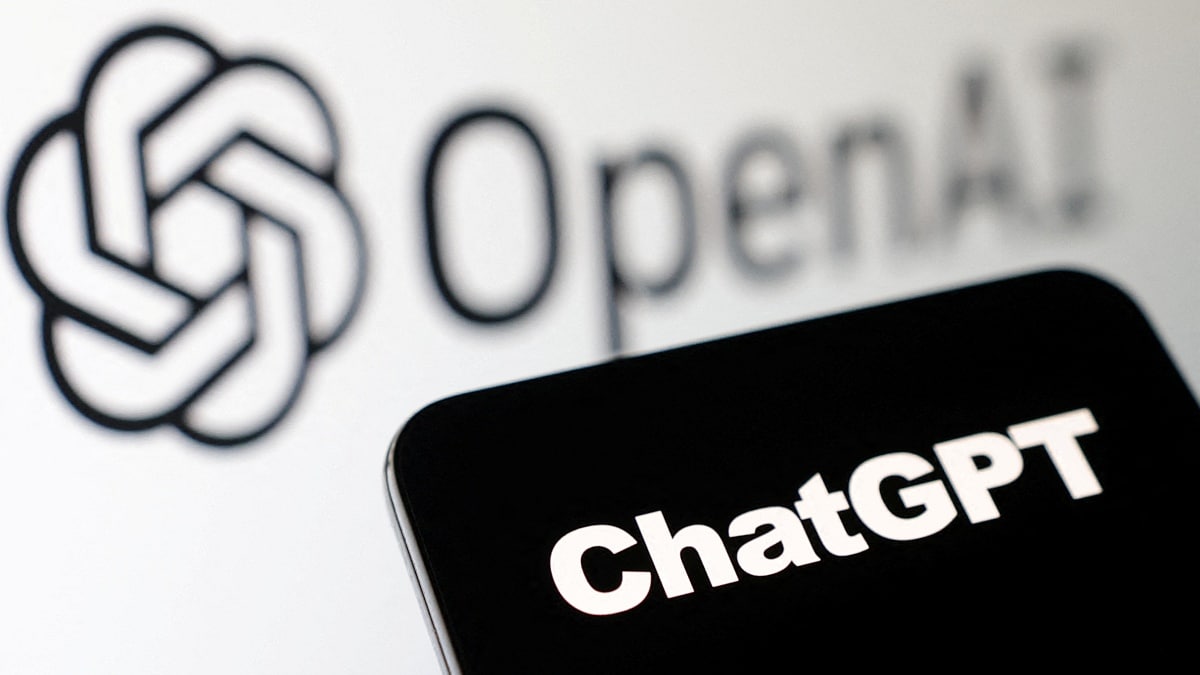China Directs Tech Companies Not to Offer Access to ChatGPT on Their Platforms: Report
ChatGPT, developed by Microsoft-backed startup OpenAI, is not officially available in China but some internet users said to access it using VPN.
Advertisement
Highlights
- Tencent Holdings, Ant Group have been asked not to offer ChatGPT access
- This is not the first time that China has blocked foreign websites, apps
- Beijing has banned dozens of prominent US websites and apps

Chinese state media outlet blasted the chatbot for spreading US government 'misinformation'
In yet another clampdown on big tech companies, China has instructed them not to offer access to ChatGPT services on their platforms, either directly or via third parties, people with direct knowledge of the matter told Nikkei Asia.
Beijing's clampdown on ChatGPT, the hugely popular AI-powered chatbot, comes as little surprise to many in China's tech industry.
Chinese state media outlet blasted the chatbot for spreading US government 'misinformation' amid growing alarm in Beijing over the AI-powered chatbot's uncensored replies to user queries, reported Nikkei Asia.
On Monday, state-owned media outlet China Daily said in a post on Weibo, China's heavily censored equivalent of Twitter, that the chatbot "could provide a helping hand to the US government in its spread of disinformation and its manipulation of global narratives for its own geopolitical interests."
Advertisement
Tencent Holdings and Ant Group, the fintech affiliate of Alibaba Group Holding, have been instructed not to offer access to ChatGPT services on their platforms.
The sources added that tech companies will also need to report to regulators before they launch their own ChatGPT-like services.
Advertisement
ChatGPT, developed by Microsoft-backed startup OpenAI, is not officially available in China but some internet users have been able to access it using a virtual private network (VPN), reported Nikkei Asia.
There have also been dozens of "mini programs" released by third-party developers on Tencent's WeChat social media app that claim to offer services from ChatGPT.
Advertisement
Under regulatory pressure, Tencent has suspended several such third-party services regardless of whether they were connected to ChatGPT or were in fact copycats, people familiar with the matter told Nikkei.
This is not the first time that China has blocked foreign websites or applications. Beijing has banned dozens of prominent US websites and apps.
Between 2009 and 2010, it moved to block Google, Facebook, YouTube, and Twitter. Between 2018 and 2019, it instituted bans on Reddit and Wikipedia.
The latest move by regulators comes amid an official backlash against ChatGPT. Sources in the tech industry say they are not surprised by such a clampdown, reported Nikkei Asia.
"Our understanding from the beginning is that ChatGPT can never enter China due to issues with censorship, and China will need its own versions of ChatGPT," said one executive from a leading tech company.
An executive from another leading Chinese tech player said that even without a direct warning his company would not use ChatGPT, reported Nikkei Asia.
"We have already been a target of the Chinese regulator [amid the tech industry crackdown in recent years], so even if there were no such ban, we would never take the initiative to add ChatGPT to our platforms because its responses are uncontrollable," the person said.
"There will inevitably be some users who ask the chatbot politically sensitive questions, but the platform would be held accountable for the results."
Since ChatGPT took the tech world by storm, Chinese tech giants, including Tencent, Alibaba and Baidu, have rushed to unveil their own plans for developing ChatGPT-like services.
These companies have been cautious about wording their announcements, however, with all of them stressing that their services are ChatGPT-like but do not integrate ChatGPT itself, reported Nikkei Asia.
China's clampdown on ChatGPT comes as tensions between the world's two largest economies continue to escalate.
US Secretary of State Antony Blinken said earlier this week that new information suggests Beijing could provide "lethal support" to Russia in the Ukraine war, triggering concerns over a new Cold War. The Chinese Foreign Ministry said the claims were false and accused Washington of spreading lies.
After facing headwinds in India last year, Xiaomi is all set to take on the competition in 2023. What are the company's plans for its wide product portfolio and its Make in India committment in the country? We discuss this and more on Orbital, the Gadgets 360 podcast. Orbital is available on Spotify, Gaana, JioSaavn, Google Podcasts, Apple Podcasts, Amazon Music and wherever you get your podcasts.
Affiliate links may be automatically generated - see our ethics statement for details.
For the latest tech news and reviews, follow Gadgets 360 on X, Facebook, WhatsApp, Threads and Google News. For the latest videos on gadgets and tech, subscribe to our YouTube channel. If you want to know everything about top influencers, follow our in-house Who'sThat360 on Instagram and YouTube.
Advertisement
